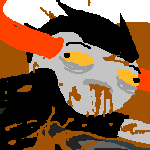|
Steve Yun posted:I dunno, if you have something called the Mountain of Matthew the first thing that comes to mind is the apostle Matthew and Christianity. You can just as easily accuse organized Christianity of suppressing individuality and enforcing groupthink in practice, if not in design. Well, the Sermon on the Mount *does* take place in Matthew (it happens on a plain in Luke). And you do have a point about doctrine still being A Thing in Abrahamic faiths; I was merely thinking from the standpoint of soteriology.
|
|
|
|

|
| # ? Jun 10, 2024 11:07 |
|
Steve Yun posted:On the plus side, I think the 3 mirrors were a brilliant rorschach test for the audience, because I'm reading around the internet and I've seen half a dozen explanations for what the 3 mirrors represented and all of them, despite being different, make pretty good sense and are convincing. Mind linking to a couple, I wouldn't mind seeing some alternative viewpoints.
|
|
|
|
 Nothing spoilery, except maybe Susan's new look.
|
|
|
|
umalt posted:Mind linking to a couple, I wouldn't mind seeing some alternative viewpoints. There's this one: quote:Link quote:Link edit-Here's another: quote:The first mirror was a "I want to be there" situation. XboxPants fucked around with this message at 05:18 on Feb 14, 2015 |
|
|
|
XboxPants posted:There's this one: On the third mirror they aways walk on themselves so the Ego thing is probably more on point (but we don't know if the same was supposed to happen on other mirrors). Steve Yun posted:One thing that seemed off about this episode was Lemongrab's ziggurat speech. It seemed out of character for him to speak in philosophical metaphors and feels like it's no longer Lemongrab talking but the writer talking instead. I feel like the story was a little too eager to have Lemongrab "defeat" organized religion and so we see Lemongrab give a bold speech and some conveniently effective act (how was he supposed to know throwing Lemon Johns at Matthew would destroy him?) to get to that goal. I agree that it was weird but I think the author just couldn't explain LG though process in a more lemongrabby fashion. The thought process being that maybe merging with Mathew, trying to reach perfection, killing the ego, would feel like going up a infinite flight of stairs. I now wonder if LG really needed to kill Mathew to avoid merging with him, couldn't he just go out of the cave? E: also apparently finn true self still don't have a right hand, but seems to have a complete arm instead of just half of it. program666 fucked around with this message at 06:24 on Feb 14, 2015 |
|
|
|
awful lot of godlike figures being destroyed in adventure time lately
|
|
|
|
I love that one guy who just could not deal with not being in the god-like collective and hopped off the cliff.
|
|
|
|
I hope Roiland just ad-libbed the line about Ziccurat as he often does to confuse everyone. Also, I liked how the guardian exploded before explaining why he wouldn't allow Jake inside. And continuity nods were cute. Apart from that, though, I still don't really like or 'get' Moynihan's episodes as a whole. Has Lemongrab accomplished something? What was his deal with the tapestry to begin with? Why should we think that Matthew was bad? Why did sweets kill Matthew? None of it makes any sense save for a vague 'makes you think' kind of message. A retelling of a classic (and somewhat tired) JRPG-y/anime-y/Le Guin-y plot in a ten-minutes episode might not be a good idea after all. E: Also JMoyns seems to rely on ironic 'hip youth' slang in dialogues more than other writers. Not sure if I like that either. Paladinus fucked around with this message at 14:07 on Feb 14, 2015 |
|
|
|
Paladinus posted:I hope Roiland just ad-libbed the line about Ziccurat as he often does to confuse everyone. Yes, he's become more at peace with himself. Which is a huge step for him. If you want more detail than that there's been plenty of analysis over the past couple pages, starting here.
|
|
|
|
XboxPants posted:Yes, he's become more at peace with himself. Which is a huge step for him. Yes, thank you, I read the thread. But what I was talking about is that his accomplishment has no cause or effect to make it matter. Apparently, he was stressing about some prophecy or something because of reasons easily understandable from things, so he thought he'd go on a mystical journey to fulfil the prophecy (???) and then throw sweets at a cloud that is bad because it says three lines (?????) to understand that he is an ugly greasy piece of lemon he is and that's why (???????) he doesn't need to worry about prophecies anymore. I know what you can read into this, that some general symbolism can be easily deduced in separate elements of the plot, and that it makes more sense when you're familiar with the author's personal opinions and previous work, but as a stand-alone episode of a family television show with an established cast of characters, it's a mess, sorry.
|
|
|
|
Paladinus posted:Yes, thank you, I read the thread. But what I was talking about is that his accomplishment has no cause or effect to make it matter. Apparently, he was stressing about some prophecy or something because of reasons easily understandable from things, so he thought he'd go on a mystical journey to fulfil the prophecy (???) and then throw sweets at a cloud that is bad because it says three lines (?????) to understand that he is an ugly greasy piece of lemon he is and that's why (???????) he doesn't need to worry about prophecies anymore. I know what you can read into this, that some general symbolism can be easily deduced in separate elements of the plot, and that it makes more sense when you're familiar with the author's personal opinions and previous work, but as a stand-alone episode of a family television show with an established cast of characters, it's a mess, sorry. (excuse me for the long post, but you asked a lot of questions in your previous post so I thought it worth going into detail) In a way, you could say that the details of the religion metaphor, or whatever it is, are actually not that important to Lemongrab's character arc here. What's important is that Lemongrab's wasn't feeling at peace. You're right, the reasons are easily understandable from "things" - these "things" being the previous appearances of the character. Even without being told, we know that Lemongrab is not an easy-going guy. Even minor flaws are screamingly, panickingly "unacceptable" to him. We're not told explicitly what's got him so upset here, but we don't really need to be; if we know Lemongrab, we know that any minor flaw within his kingdom or himself would be enough to make him intolerably uncomfortable. Specifically, we see him freak out while staring at his crumbling ceiling, infested with insects. It's also worth noting that the creepy lemon-centipede is, in fact, another manifestation of Lemongrab himself; he's not just being disturbed by an outside being, he's showing an inability to accept certain aspects of himself here. This theme is important. So he left on a quest for direction. In the Mirror test, he learned to accept his "grease", which originally disturbed him, as just a part of himself - he learned to be more at peace with his own flaws. He then found someone who told him he could give him a direction, and LG was truly tempted. But instead of giving his self over to Matthew, he decided he didn't want to give up control like that. He rejected Matthew and used the lesson he had learned about self-acceptance to try to come up a direction of his own. For some reason this meant using Lemonjon candies, little extensions of himself. Then when he gets back to his castle, he even uses his gross lemony goo to repair the crack that had bothered him before. He's done a full reversal; what once controlled him, he now controls, both inside & out. You're right, the part about the Candies destroying Matthew wasn't clear. But while it's a flaw, I don't think it ruins the episode. The character arc for LG is still clear: uncomfortable with his flaws, looking for direction/meaning, finds someone who wants him to follow their meaning, temptation, instead decides to follow his own direction/meaning and "incorporates [of his flaws] as something inseparable from his ability to control the world around him".
|
|
|
|
I believe the candies represent individualism which was anathema to the hivemind being and caused them to disperse. Matthew's power wasn't from a single source, but the manifestation of all of those beings thinking alike. Plus the "infinite staircase" line is probably referring to the fact that religion tries to get people to hold themselves to an unrealistic standard that nobody can genuinely achieve which is unacceptable once you learn to be at peace with your grease, yo.
|
|
|
|
Someone earlier posted a link to Moynihan explaining the episode a bit, but he also said that he likes it when the audience can't easily tell whats happening or isn't told how to feel about stuff. So being confused about this episode seems to be the intended goal. Whether that's good storytelling is debatable though.
|
|
|
|
Nephthys posted:he likes it when the audience can't easily tell whats happening or isn't told how to feel about stuff. The fact that, to him, that doesn't fall under "what real life is for" is a little funny.
|
|
|
|
Chakram posted:The fact that, to him, that doesn't fall under "what real life is for" is a little funny. But... he does recognize that's what real life is for. Have you read the post in question? Those things that make real life so interesting and worthwhile are entirely why he likes ambiguous storytelling: quote:Iím willing to participate in passive engagement, but I greatly prefer the idea that entertainment may reflect the poetry and ambiguity of life. The difference here, I guess, is that while he recognizes and values the more complex experiences you can have in real life, he doesn't go so far as to say that those things should be limited to only being found in real life, and never present in entertainment - which seems to be what you're saying? I don't see any reason why entertainment should have some special limits imposed on it about how deep it can get, while you can only experience ambiguity in real life. Engaging in art is just another form of conversation between real human beings anyway - how is that not "real life"?
|
|
|
|
XboxPants posted:But... he does recognize that's what real life is for. Have you read the post in question? Those things that make real life so interesting and worthwhile are entirely why he likes ambiguous storytelling: I don't think ambiguity has to come in the form of difficult-to-follow stories, though. That blog post draws an imaginary line in the sand, I think. Game of Thrones is able to do it through showing sympathetic viewpoints from opposing sides, while also having sympathetic moments with "bad" characters and "bad" moments with sympathetic characters. If the message could be more effectively communicated via a paragraph of straightforward psychological discussion then the storytelling is redundant and potentially harmful to it. Bass Bottles fucked around with this message at 23:46 on Feb 14, 2015 |
|
|
|
Bass Bottles posted:I don't think ambiguity has to come in the form of difficult-to-follow stories, though. That blog post draws an imaginary line in the sand, I think. Game of Thrones is able to do it through showing sympathetic viewpoints from opposing sides, while also having sympathetic moments with "bad" characters and "bad" moments with sympathetic characters. That's an enormous if. "Effectively" is really the key word there, isn't it? You could take any story or piece of art and write up the message in a short paragraph, and it would certainly be more straightforward, as you say, but I don't think you can assume that makes it more effective. There's a reason cultures tell their children parables, as well as straightforwardly conveying the message. I don't think one can say for sure that straightforwardly giving someone a message is always more effective than giving them the pieces and letting them come up with the message, or their own interpretation of it, on their own. I also think there's some invalid conflation going in between "intentionally ambiguous" and "intentionally confusing and hard to follow", but that's another post.
|
|
|
|
"I'm going inside you!" "It's sticky... and gross!" 
|
|
|
|
XboxPants posted:That's an enormous if. "Effectively" is really the key word there, isn't it? You could take any story or piece of art and write up the message in a short paragraph, and it would certainly be more straightforward, as you say, but I don't think you can assume that makes it more effective. There's a reason cultures tell their children parables, as well as straightforwardly conveying the message. That's not really what I meant. Narrative is an effective method of communicating ideas because you connect with it emotionally. But to do that, you need to understand what you're feeling and why you feel it. Ambiguity in stories should generally come from the perspective of the character. THEY are the one who is confused. The audience sympathizes with that confusion, but that comes through understanding the characters emotions, not from the structure of the story getting in the way. Obviously, breaking "rules" can be a powerful narrative technique. The movie "Memento" uses it effectively to help the viewer understand the main character's extremely limited short term memory by breaking the story into chunks and then putting them in reverse order. The structure of the narrative is confusing, but it serves a purpose. You can't just throw this technique at every story and expect it to work, though, which is sort of what I think Jesse Moynihan does. He uses abstract symbolism and surrealism to make straightforward stories seem more complex, but it's sort of an illusion. If you figured out the message of this episode, you already understood it. You didn't learn anything. And if you disagree, there's nothing here to change your mind. I feel like Jesse is struggling with the notion of "show don't tell" in a story format that doesn't have room to let him explore the kinds of ideas he wants to. He had big ideas, but they don't fit into 11 minute cartoons, especially when they star side characters who don't have much cumulative screen time to begin with. The fables you mention tend to have much simpler messages for this reason. He needs to scale back his ideas or get them more naturally spread throughout the season.
|
|
|
|
Paladinus posted:Apart from that, though, I still don't really like or 'get' Moynihan's episodes as a whole. Has Lemongrab accomplished something? What was his deal with the tapestry to begin with? Why should we think that Matthew was bad? Why did sweets kill Matthew? None of it makes any sense save for a vague 'makes you think' kind of message. A retelling of a classic (and somewhat tired) JRPG-y/anime-y/Le Guin-y plot in a ten-minutes episode might not be a good idea after all. My interpretation was that Lemongrab keeps a this Matthew tapestry on his ceiling as something to look at as he goes to sleep/because he's got an ego and wants a weird valuable historic object, when it tore apart his need for perfection caused him to flip out so he went to go make it about him so the metaphor it depicted still worked. Thus I choose not to look at this as another shlocky """deep""" episode but Lemongrab messing up a weird religious thing because he has OCD.
|
|
|
|
This was a cartoon about an autistic lemon killing god. How did that end up unfunny?
|
|
|
|
It's not the episode that was unfunny.
|
|
|
|
Well I certainly wasn't laughing.
|
|
|
|
About that ziggurat line, I think someone told me it was a Time Masters (1982) reference, but I've never seen it so I wouldn't know for sure.
|
|
|
|
The creature denies happiness!
|
|
|
|
I feel fancy today, so I'll throw a term 'diluted narrative' in. That's what I think describes JMoyn's stuff at large. There are so many empty symbols that add nothing neither to the story or to characterisation. Finn running on himself from himself and his arm disappears and then grows back. Looked cool, I guess, but ultimately felt to me devoid of contextual meaning. Also, here's the thing. Isn't Lemongrab like Matthew in a way? All his subjects are facets of his own personality and even those lemon drops he eats were made in his image. If he needed a lesson in accepting individuality with possible flows it entails, surely, showing him let other lemons do their own stuff when they want would be more effective. Instead, he is reassured that he is indeed in control and his own 'grease' can fix any problem in his life, because that's how perfect he is in his imperfection.
|
|
|
|
So would that mean Lemongrab's a king who has deified himself and when threatened with the possibility of an actual deity, would choose to destroy it rather than sacrifice his own ego? Matthew could have very well been a god since Adventure Time works on a sort a Greek god principle wherein gods are being with immense power, have physical forms and can be killed.
|
|
|
|
It's totes about molestation in church. Lemongrab defiles the god with his seeds and twists that poo poo into becoming his own vision. It's rape all the way down.
|
|
|
|
See thread title.
|
|
|
|
I think I'm going to need to get a better look at the picture on Lemongrab's ceiling before I can find anything to say about that one.
|
|
|
|
 -The knight meets the guardian thing at the door -He is confronted with 3 choices, chooses correctly and runs down his own arm -He presents Matthew with a small object of some sort, the lemon candy. That picture answers the question of why Lemongrab knew how to kill Matthew, if nothing else.
|
|
|
|
How come they've never put out a soundtrack of the background music? Or the actual songs, at the very least. You'd think they'd sell like crazy.
|
|
|
|
ChairMaster posted:
It looks like the object he's presenting Matthew with is one of the small white orbs of which Matthew is composed.
|
|
|
|
basically their self, i'm guessing.
|
|
|
|
Paladinus posted:I feel fancy today, so I'll throw a term 'diluted narrative' in. That's what I think describes JMoyn's stuff at large. There are so many empty symbols that add nothing neither to the story or to characterisation. Finn running on himself from himself and his arm disappears and then grows back. Looked cool, I guess, but ultimately felt to me devoid of contextual meaning. I took that specific shot to mean that Finn is himself all the way through. He doesn't have any personal grease to confront, he is aware of what drives him, and is comfortable with it. The amputated arm is his past, and it quickly becomes replaced with the 'now'. For me, this ties in with him shooting his dad off as a sign that he is capable and independent.
|
|
|
|
nerdbot posted:My interpretation was that Lemongrab keeps a this Matthew tapestry on his ceiling as something to look at as he goes to sleep/because he's got an ego and wants a weird valuable historic object, when it tore apart his need for perfection caused him to flip out so he went to go make it about him so the metaphor it depicted still worked. Don't forget that Lemongrab constantly has been wanting to play God ever since PB gave him the kingdom. He's captured people and electrocuted them, subjugated his creations (and Lemonjohn, given that he was a house), eaten his white self, and now he's killed another God-like character to (possibly?) become better than it. He's no better that PB was before she turned off the surveillance systems. They both have massive egos and God complexes.
|
|
|
|
Zorglorfian posted:Don't forget that Lemongrab constantly has been wanting to play God ever since PB gave him the kingdom. He's captured people and electrocuted them, subjugated his creations (and Lemonjohn, given that he was a house), eaten his white self, and now he's killed another God-like character to (possibly?) become better than it. He's no better that PB was before she turned off the surveillance systems. They both have massive egos and God complexes. I think the intention is that Lemongrab now is better than he was before. Before he did have a massive uncontrollable urge to be a control freak and had trouble dealing with things he didn't understand. He was cloned, and the White Lemongrab survived abuse at the hands of the Black Lemongrab. This abuse opened up White Lemongrab's worldview and he became sympathetic to all the subjects of the Earldom who had been living under abuse as well. Black and White Lemongrab are sewn together into one being. The new Lemongrab is, in mind and body, made up of both the Black and White Lemongrabs. This is symbolized by the black and white diamond badge on his shirt and the new black and white decorative motifs everywhere. Having the life experiences of two people presumably means he's got a broader worldview. He is not seen torturing his subjects now, instead just being very bossy in his own awkward way. But his bossiness doesn't seem to be out of tune with how his subjects want to be governed; he orders them to sleep and almost everyone falls asleep immediately. I think the intention with this new episode is to show that the New Lemongrab is a little wiser than the old one; no longer torturing his people, seeing through the illusion of organized religion, etc. Steve Yun fucked around with this message at 20:20 on Feb 17, 2015 |
|
|
|
If any of you are still wondering why the lemon candies destroyed the godhead, just watch the ep with Lemon John again.
|
|
|
|
MariusLecter posted:If any of you are still wondering why the lemon candies destroyed the godhead, just watch the ep with Lemon John again. Thanks, that was bugging me but it actually clicked the second I read your post.
|
|
|
|

|
| # ? Jun 10, 2024 11:07 |
|
And for the rest of us who don't have the episode handy, care to clue us in?
|
|
|
































